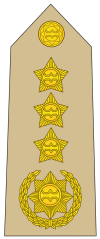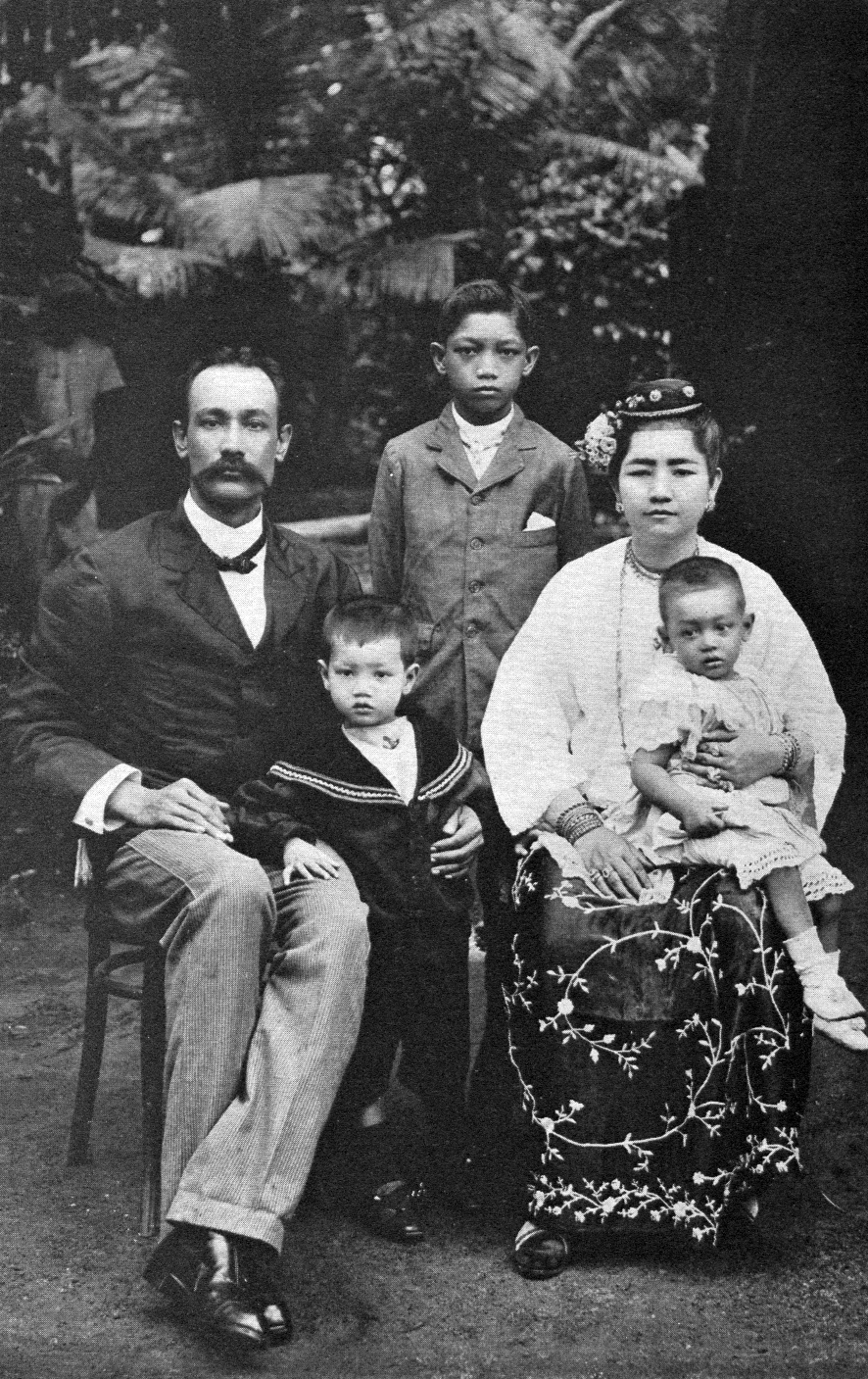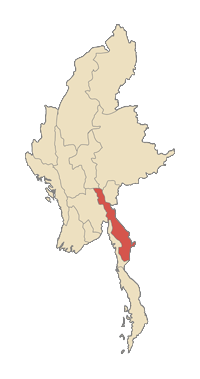|
Chamber Of Nationalities
The Chamber of Nationalities ( my, လူမျိုးစုလွှတ်တော်) was the upper house of the bicameral Union Parliament of Burma (Myanmar) from 1948 to 1962. Under the 1947 Constitution, bills initiated and passed by the lower house, the Chamber of Deputies, were to be sent to the Chamber of Nationalities for review and revision. The Chamber of Nationalities was primarily formed to give minorities within Burma some political power in the national government. It consisted of 125 seats, with the constitution providing for specified numbers of representatives from all states and divisions. 25 seats were allotted to Shan State, 12 to Kachin State, 8 seats to Special Division of the Chins (now Chin State), 3 seats to Karenni State (now Kayah State), 24 to ethnic Karens, and 53 to all other territories (including divisions), including 4 seats reserved specifically for the Anglo-Burmese community. The Parliament was abolished after Ne Win suspended the 1947 Consti ... [...More Info...] [...Related Items...] OR: [Wikipedia] [Google] [Baidu] |
Upper House
An upper house is one of two Debate chamber, chambers of a bicameralism, bicameral legislature, the other chamber being the lower house.''Bicameralism'' (1997) by George Tsebelis The house formally designated as the upper house is usually smaller and often has more restricted power than the lower house. A legislature composed of only one house (and which therefore has neither an upper house nor a lower house) is described as Unicameralism, unicameral. Definite specific characteristics An upper house is usually different from the lower house in at least one of the following respects (though they vary among jurisdictions): Powers: *In a parliamentary system, it often has much less power than the lower house. Therefore, in certain countries the upper house **votes on only limited legislative matters, such as constitutional amendments, **cannot initiate most kinds of legislation, especially those pertaining to supply/money, fiscal policy **cannot vote a motion of no confidence again ... [...More Info...] [...Related Items...] OR: [Wikipedia] [Google] [Baidu] |
Kayah State
Kayah State ( my, ကယားပြည်နယ်, formerly Karenni State) is a state of Myanmar. Situated in eastern Myanmar, it is bounded on the north by Shan State, on the east by Thailand's Mae Hong Son Province, and on the south and west by Kayin State. It lies approximately between 18° 30′ and 19° 55′ north latitude and between 96° 50′ and 97° 50′ east longitude. The area is . Its capital is Loikaw (also spelt Loi-kaw). The estimated population in 1998 was approximately 207,357, according to UNICEF. It is inhabited primarily by the Karenni ethnic group, also known as Red Karen or Kayah, a Sino-Tibetan people. Geography Karenni (Kayah) State is located in the eastern part of Myanmar. The relief of Karenni (Kayah) State is mountainous with the Dawna Range and the Karen Hills also known as "Karenni-Karen" mountains separated by the Salween River as it flows through Karenni (Kayah) State. Balu Chaung flows from Inle Lake to Than Lwin River and converges with t ... [...More Info...] [...Related Items...] OR: [Wikipedia] [Google] [Baidu] |
1948 Establishments In Burma
Events January * January 1 ** The General Agreement on Tariffs and Trade (GATT) is inaugurated. ** The Constitution of New Jersey (later subject to amendment) goes into effect. ** The railways of Britain are nationalized, to form British Railways. * January 4 – Burma gains its independence from the United Kingdom, becoming an independent republic, named the ''Union of Burma'', with Sao Shwe Thaik as its first President, and U Nu its first Prime Minister. * January 5 ** Warner Brothers shows the first color newsreel (''Tournament of Roses Parade'' and the '' Rose Bowl Game''). ** The first Kinsey Report, ''Sexual Behavior in the Human Male'', is published in the United States. * January 7 – Mantell UFO incident: Kentucky Air National Guard pilot Thomas Mantell crashes while in pursuit of an unidentified flying object. * January 12 – Mahatma Gandhi begins his fast-unto-death in Delhi, to stop communal violence during the Partition of India. * January 1 ... [...More Info...] [...Related Items...] OR: [Wikipedia] [Google] [Baidu] |
Legislatures Of Myanmar
A legislature is an assembly with the authority to make laws for a political entity such as a country or city. They are often contrasted with the executive and judicial powers of government. Laws enacted by legislatures are usually known as primary legislation. In addition, legislatures may observe and steer governing actions, with authority to amend the budget involved. The members of a legislature are called legislators. In a democracy, legislators are most commonly popularly elected, although indirect election and appointment by the executive are also used, particularly for bicameral legislatures featuring an upper chamber. Terminology The name used to refer to a legislative body varies by country. Common names include: * Assembly (from ''to assemble'') * Congress (from ''to congregate'') * Council (from Latin 'meeting') * Diet (from old German 'people') * Estates or States (from old French 'condition' or 'status') * Parliament (from French ''parler'' 'to speak') By ... [...More Info...] [...Related Items...] OR: [Wikipedia] [Google] [Baidu] |
Sao Hkun Kyi
SAO or Sao may refer to: Places * Sao civilisation, in Middle Africa from 6th century BC to 16th century AD * Sao, a town in Boussé Department, Burkina Faso * Saco Transportation Center (station code SAO), a train station in Saco, Maine, U.S. * SAO, the ICAO airline designator for Sahel Aviation Service, Mali * SAO, the IATA airport code for airports in the São Paulo metropolitan area, Brazil * Serb Autonomous Regions during the breakup of Yugoslavia * São Paulo, the largest city in Brazil Science * Smithsonian Astrophysical Observatory of the Smithsonian Institution in Cambridge, Massachusetts, U.S. ** Smithsonian Astrophysical Observatory Star Catalog, which assigns SAO catalogue entries * Special Astrophysical Observatory of the Russian Academy of Science (SAO RAS) Entertainment * ''Sword Art Online'', a Japanese light novel series ** ''Sword Art Online'' (2012 TV series), an anime adaptation of the light novels * Sao Sao Sao, a Thai pop music trio Other uses ... [...More Info...] [...Related Items...] OR: [Wikipedia] [Google] [Baidu] |
Sao Shwe Thaik
Sao Shwe Thaik ( shn, ၸဝ်ႈၶမ်းသိူၵ်ႈ, ''Tsaw³ Kham⁴soek³''; my, စဝ်ရွှေသိုက်, ; 16 October 1895 – 21 November 1962) was a Burmese politician who served as the first president of the Union of Burma and the last Saopha of Yawnghwe. His full royal title was ''Kambawsarahta Thiri Pawaramahawuntha Thudamaraza''. He was a well-respected Shan political figure in Burma. His residence in Nyaung Shwe (Yawnghwe), the Haw, is now the "Buddha Museum" and is open to the public. Early life Born on 16 October 1895 of the British Raj,His birth year is reported as either 1894 or 1896. (Seekins 2006: 410–411) gives 1894. (Sarpay Beikman 1952) says that he was born on 16 October 1896 in the Burmese year of 1257. But both cannot be true since 1257 ME lasted between 15 April 1895 and 14 April 1896, and 16 October 1896 fell in 1258 ME; thus, he was born either on 16 October 1895 (14th waning of Thadingyut 1257 ME), or a year later on 16 ... [...More Info...] [...Related Items...] OR: [Wikipedia] [Google] [Baidu] |
Unicameralism
Unicameralism (from ''uni''- "one" + Latin ''camera'' "chamber") is a type of legislature, which consists of one house or assembly, that legislates and votes as one. Unicameral legislatures exist when there is no widely perceived need for multicameralism (two or more chambers). Many multicameral legislatures were created to give separate voices to different sectors of society. Multiple houses allowed, for example, for a guaranteed representation of different social classes (as in the Parliament of the United Kingdom or the French States-General). Sometimes, as in New Zealand and Denmark, unicameralism comes about through the abolition of one of two bicameral chambers, or, as in Sweden, through the merger of the two chambers into a single one, while in others a second chamber has never existed from the beginning. Rationale for unicameralism and criticism The principal advantage of a unicameral system is more efficient lawmaking, as the legislative process is simpler and there is ... [...More Info...] [...Related Items...] OR: [Wikipedia] [Google] [Baidu] |
Single-party System
A one-party state, single-party state, one-party system, or single-party system is a type of sovereign state in which only one political party has the right to form the government, usually based on the existing constitution. All other parties are either outlawed or allowed to take only a limited and controlled participation in elections. Sometimes the term "''de facto'' one-party state" is used to describe a dominant-party system that, unlike the one-party state, allows (at least nominally) democratic multiparty elections, but the existing practices or balance of political power effectively prevent the opposition from winning power. Although it is predated by the 1714 to 1783 "age of the Whig oligarchy" in Great Britain, the rule of the Committee of Union and Progress (CUP) over the Ottoman Empire following the 1913 coup d'etat is often considered the first one-party state. Concept One-party states justify themselves through various methods. Most often, proponents of a one- ... [...More Info...] [...Related Items...] OR: [Wikipedia] [Google] [Baidu] |
1962 Burmese Coup D'état
The 1962 Burmese coup d'état on 2 March 1962 marked the beginning of one-party rule and the political dominance of the army in Burma (now Myanmar) which spanned the course of 26 years. In the coup, the military replaced the civilian AFPFL-government, headed by Prime Minister U Nu, with the Union Revolutionary Council, Chaired by General Ne Win. In the first 12 years following the coup, the country was ruled under martial law, and saw a significant expansion in the military's role in the national economy, politics, and state bureaucracy. Following the constitution of 1974, the Revolutionary Council handed over power to the elected government, consisting of a single-party, the Burma Socialist Programme Party, which had been founded by the council in 1962. The elected government remained hybrid between civilian and military, until 18 September 1988, when the military again took over power as the State Law and Order Restoration Council (then renamed the State Peace and Develop ... [...More Info...] [...Related Items...] OR: [Wikipedia] [Google] [Baidu] |
Ne Win
Ne Win ( my, နေဝင်း ; 10 July 1910, or 14 or 24 May 1911 – 5 December 2002) was a Burmese politician and military commander who served as Prime Minister of Burma from 1958 to 1960 and 1962 to 1974, and also President of Burma from 1962 to 1981. Ne Win was Burma's military dictator during the Socialist Burma period of 1962 to 1988. Ne Win founded the Burma Socialist Programme Party (BSPP) and overthrew the democratic Union Parliament of U Nu in the 1962 Burmese coup d'état, establishing Burma as a one-party socialist state under the Burmese Way to Socialism ideology. Ne Win was Burma's ''de facto'' leader as chairman of the BSPP, serving in various official titles as part of his military government, and was known by his supporters as U Ne Win. His rule was characterized by a non-aligned foreign policy, isolationism, one-party rule, economic stagnation and superstition. Ne Win resigned in July 1988 in response to the 8888 Uprising that overthrew the BSPP, ... [...More Info...] [...Related Items...] OR: [Wikipedia] [Google] [Baidu] |
Anglo-Burmese People
The Anglo-Burmese people, also known as the Anglo-Burmans, are a community of Eurasians of Burmese and European descent, who emerged as a distinct community through mixed relationships (sometimes permanent, sometimes temporary) between the British and other Europeans and Burmese people from 1826 until 1948 when Myanmar gained its independence from the British Empire. Those who could not adjust to the new way of life after independence and the ushering in of military dictatorship are dispersed throughout the world. How many stayed in Myanmar is not accurately known. The term "Anglo-Burmese" is also used to refer to Eurasians of European and other Burmese ethnic minority groups (e.g. Shan, Karen, Mon, Sino-Burmese) descent. It also, after 1937, included Anglo-Indian residents in Burma. Collectively, in the Burmese language, Eurasians are specifically known as ''bo kabya''; the term ''kabya'' refers to persons of mixed ancestry or dual ethnicity. History Earliest settlement Th ... [...More Info...] [...Related Items...] OR: [Wikipedia] [Google] [Baidu] |
Karen People
The Karen, kjp, ပ်ုဖၠုံဆိုဒ်, my, ကရင်လူမျိုး, , th, กะเหรี่ยง ( ), also known as the Kayin, Kariang or Kawthoolese, are an ethnolinguistic group of Sino-Tibetan language–speaking peoples. The group as a whole is heterogeneous and disparate as many Karen ethnic groups do not associate or identify with each other culturally or linguistically. These Karen groups reside primarily in Kayin State, southern and southeastern Myanmar. The Karen, approximately five million people, account for approximately seven percent of the Burmese population. Many Karen have migrated to Thailand, having settled mostly on the Myanmar–Thailand border. A few Karen have settled in the Andaman and Nicobar Islands, India, and other Southeast Asian and East Asian countries. The Karen groups as a whole are often confused with the Padaung tribe, best known for the neck rings worn by their women, but t ... [...More Info...] [...Related Items...] OR: [Wikipedia] [Google] [Baidu] |







